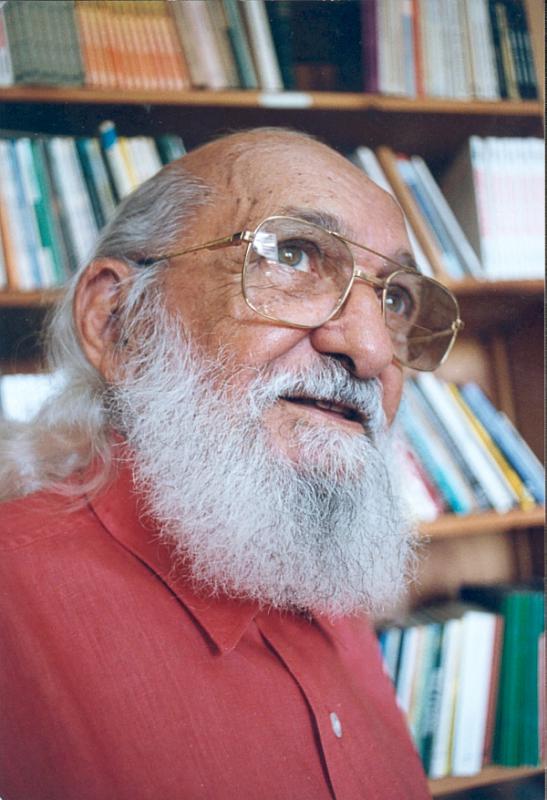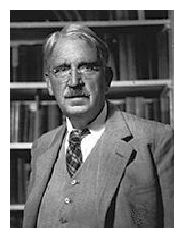Serendip is an independent site partnering with faculty at multiple colleges and universities around the world. Happy exploring!
Notes Towards Day 7 (Tues, Sept. 20): From Narration Sickness to World Transformation


"... thought has meaning only when generated by action upon the world"
(sounds like Dewey, but it's Freire, p. 58!) -->
entertaining the conceit that they are talking, with us, across space and time....
I. coursekeeping
naming...
@ 12:15 Jody's students will join us for writing workshops
but first!
for Thursday, read 4 excerpts -->
Introduction, “Engaged Pedagogy,” “Paulo Friere” and “Confronting Class in the Classroom" --
from bell hooks' 1994 book, Teaching to Transgress: Education as the Practice of Freedom.
This Friday, for your fourth writing assignment, you'll re-read/revise/re-think/
re-write your 2nd or 3rd paper. For most of you, I've suggested using Dewey,
Freire, or hooks as a way of shifting/sharpening/complicating/deepening/
expanding/focusing your argument...and/or as raising some new questions;
not a requirement, but a strong suggestion for helping you think "beyond"
where you've gone so far...
Also to consider: the additional challenge of getting feedback from two
(differently positioned/weighted) readers; as authors it's now your opportunity
to decide/clarify your core claim etc... (story of publishing my first essay:
recognizing when your readers aren't looking for what you're offering!)
finally: talking about that 5 p.m. deadline (=the 3 pp. limit: useful, but/and....)
II. postings, reflecting back on/revising/adding to last week's discussion of Edmundson:
"One of the things I was struck with today was how much pressure is put on students ... a constant push to be the best, so you can get to the next level, so you can be the best there, so you can move and continue to compete. In this kind of system, you're not only the consumer, but you're also the product."
New York Times article this weekend by Paul Tough:
http://www.nytimes.com/2011/09/18/magazine/what-if-the-secret-to-success-is-failure.html
"what kids need more than anything is a little hardship:
some challenge, some deprivation that they can overcome..."
for "a happy, meaningful, productive life...
they first need to learn how to fail."
thamid: Does anyone have a complete access to education?
Jillian: the first step towards gaining access to education is having the desire and curiosity to learn. Without being psychologically openminded towards learning, the level of access one has is irrelevant.
kganihanova: Your access to education is not the only thing that makes education, it is your approach to it. If you don't appreciate it- all the access in the world won't do anything.
jrschwartz: I decided to focus on how disability can define a student's access to education.
melal: Class mobility… is not always equal to happiness…people who change their life by receiving education…put themselves in an awkward position, where is extremely hard to find a sense of belonging.
nbnguygen: Jane Tompkins…did not really access to education due to her advanced schooling.
LittleItaly: no matter what kind of education one gets 'too much' of a good thing can be a bad thing…
thamid: Does anyone have a complete access to education?
III. Last week we did an awfully nice job highlighting/
problematizing John Dewey's key ideas.
We didn't get a chance to "put them up against" /try them
out as a way of interpreting Yezierksa's story--or your own.
What happens when we do?
When/how was experience a teacher for her? for you?
What are the problems raised in thinking about education this-a-way?
What gets left out??
IV. for today, we read Chapter 2 of Paulo Friere's
1990 book, Pedagogy of the Oppressed;
let's "put him up against" John Dewey -->
what would he say? what would Dewey say back??
are they looking @ the same sort of world/students?
imagining the same sort of educational process,
to the same or different ends?
Quotes to read/invite responses
(count off to 4, for groups of 3/4):
"Education is suffering from narration sickness" (p. 52)--
what's wrong w/ the story?
"The more students work at storing the deposits entrusted to them,
the less they develop the critical consciousness which would result
from their intervention in the world as transformers of that world" (p. 54) --
How is this akin (or not?) to the story that Dewey was telling?
Do you recognize yourself in it? How applicable to your life/education is this
pedagogy, designed for radically disenfranchized, illiterate Brazilian peasants?
(It has been much genderized, modernized, Americanized, via Women's ways of Knowing, et. al.)
"They may discover through existential experience that their
present way of life is irreconcilable with their vocation to become fully human....
But the humanist, revolutionary educator cannot wait" (p. 56) -->
WHY NOT? what exactly is the role of the teacher in this tale?
What is "problem-posing education"? (p. 60)
"...affirms men and women as beings in the process of becoming --
as unfinished, uncompleted beings in and with a likewise unfinished reality ...
they are aware of their incompletion ... the very roots of education" (p. 65).
"accepts neither a 'well-behaved' present nor a predetermined future --
roots itself in the dynamic present and becomes revolutionary" (p. 65).
"they must perceive their state not as fated and unalterable, but merely
as limiting --and therefore challenging ... susceptible of transformation" (p. 66).
What's your response to these descriptions of our shared activity?
"They become jointly responsible for a process in which all grow ....
critical co-investigators in dialogue" (pp. 61-2).
"Education as the practice of freedom ... denies that the world
exists as a reality apart from people. Authentic reflection considers ...
people in their relations with the world" (p. 62).
"No one can be authentically human while he prevents others from being so" (p. 66).
Remember Shorris saying that "coming into possession of the faculty of reflection and the skills of politics leads to a choice for the poor ... they may chose to oppose the game itself ... who wants to run that risk?"
Peter Elbow: Freire "goes the Deweyian tradition of 'learning-by-doing' one further,"
in its argument that the teacher must help "incomplete men"
in their quest for revolution against an oppressive social order -->
this is a much more profound social critique than Dewey's project of
preparing students to do the work of citizens in a democracy:
this involves renovating the whole system! --
NOW you're really getting a real taste of '60s radicalism!!
IV. Jody's crew arrives...
Shannon: proposal for enlarging of the on-line conversation
pair up w/ your partner and "diffract" one another's writing:
tell her what claim you see her making,
what support she provides for that claim,
what interests you in her discussion,
and where you got lost/have questions.
Could your paper be focused or expanded with help
from John Dewey or Paulo Friere (or upcoming!
bell hook)'s ideas? Where do yousee interesting/
generative points of intersection?


